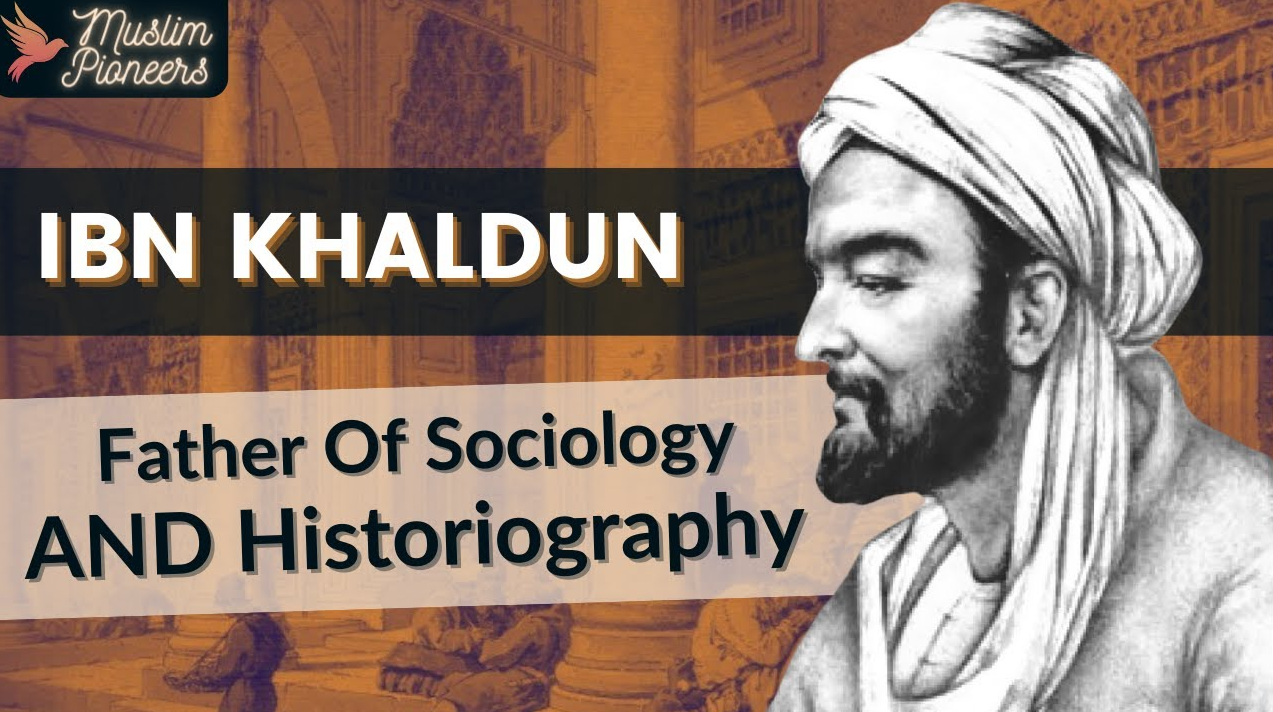 By Neenah Payne
By Neenah Payne
Abd al-Rahman Ibn Muhammad Ibn Khaldun al-Hadrami (1332-1406), known in the West as “Ibn Khaldun”, was a sociologist, historiographer, economist, and philosopher. He is often considered the Father of Sociology and Historiography. In “Ibn Khaldun, the Father of Economics” copied in part below, Ibrahim M. Owens of Georgetown University explains why Ibn Khaldun should also be considered the Father of Economics.
In his Prolegomena (The Muqaddimah), Abd al-Rahman Ibn Muhammad Ibn Khaldun al-Hadrami of Tunis (A.D. 1332-1406), commonly known as Ibn Khaldun, laid down the foundations of different fields of knowledge, in particular the science of civilization (al-‘umran).
His significant contributions to economics, however, should place him in the history of economic thought as a major forerunner, if not the “father,” of economics, a title which has been given to Adam Smith, whose great works were published some three hundred and seventy years after Ibn Khaldun’s death. Not only did Ibn Khaldun plant the germinating seeds of classical economics, whether in production, supply, or cost, but he also pioneered in consumption, demand, and utility, the cornerstones of modern economic theory.
Before Ibn Khaldun, Plato and his contemporary Xenophon presented, probably for the first time in writing, a crude account of the specialization and division of labor. On a non-theoretical level, the ancient Egyptians used the techniques of specialization, particularly in the era of the Eighteenth Dynasty, in order to save time and to produce more work per hour.
Following Plato, Aristotle proposed a definition of economics and considered the use of money in his analysis of exchange. His example of the use of a shoe for wear and for its use in exchange was later presented by Adam Smith as the value in use and the value in exchange.
Another aspect of economic thought before Ibn Khaldun was that of the Scholastics and of the Canonites, who proposed placing economics within the framework of laws based on religious and moral perceptions for the good of all human beings. Therefore all economic activities were to be undertaken in accordance with such laws.
Ibn Khaldun was cognizant of these ideas, including the one relating to religious and moral perceptions. The relationship between moral and religious principles on one hand and good government on the other is effectively expounded in his citation and discussion of Tahir Ibn al-Husayn’s (A.D. 775-822) famous letter to his son Abdallah, who ruled Khurasan with his descendants until A.D. 872. From the rudimentary thoughts of Tahir, he developed a theory of taxation which has affected modern economic thought and even economic policies in the United States and elsewhere.
Activist Post is Google-Free — We Need Your Support
Contribute Just $1 Per Month at Patreon or SubscribeStarThis paper attempts to give Ibn Khaldun his forgotten and long overdue credit and to place him properly within the history of economic thought. He was preceded by a variety of economic but elemental ideas to which he gave substance and depth. Centuries later these same ideas were developed by the Mercantilists, the commercial capitalists of the seventeenth century — Sir William Petty (A.D. 1623-1687), Adam Smith (A.D. 1723-1790), David Ricardo (A.D. 1772-1823), Thomas R. Malthus (A.D. 1766-1834), Karl Marx (A.D. 1818-1883), and John Maynard Keynes (A.D. 1883-1946), to name only a few — and finally by contemporary economic theorists….
Even if Adam Smith was not directly exposed to Ibn Khaldun’s economic thoughts, the fact remains that they were the original seeds of classical economics and even modern economic theory.
Ibn Khaldun had not only been well established as the father of the field of sociology, but he had also been well recognized in the field of history, as the following passage from Arnold Toynbee indicates:
“In his chosen field of intellectual activity [Ibn Khaldun] appears to have been inspired by no predecessors … and yet, in the Prolegomena … to his Universal History he has conceived and formulated a philosophy of history which is undoubtedly the greatest work of its kind that has yet been created by any mind in any time or place.”
The Father Of Sociology & Historiography – Ibn Khaldūn
Abū Zayd ‘Abd ar-Raḥmān ibn Muḥammad ibn Khaldūn al-Ḥaḍramī, was a sociologist, a philosopher, an economist, and a historiographer. In fact, he is often considered to be the father of Historiography & Sociology.
Impact of Ibn Khaldum
Wikipedia says:
His best-known book, the Muqaddimah or Prolegomena (“Introduction”), which he wrote in six months as he states in his autobiography, influenced 17th-century and 19th-century Ottoman historians such as Kâtip Çelebi, Mustafa Naima, and Ahmed Cevdet Pasha who used its theories to analyze the growth and decline of the Ottoman Empire. Ibn Khaldun interacted with Tamerlane, the founder of the Timurid Empire.
He has been called one of the most prominent Muslim and Arab scholars and historians. Recently, Ibn Khaldun’s works have been compared with those of influential European philosophers such as Niccolò Machiavelli, Giambattista Vico, David Hume, G. W. F. Hegel, Karl Marx, and Auguste Comte as well as the economists David Ricardo and Adam Smith, suggesting that their ideas found precedent (although not direct influence) in his. He has also been influential on certain modern Islamic thinkers (e.g. those of the traditionalist school)….
19th century Scottish theologian and philosopher Robert Flint praised him strongly, “as a theorist of history, he had no equal in any age or country until Vico appeared, more than three hundred years later. Plato, Aristotle, and Augustine were not his peers, and all others were unworthy of being even mentioned along with him“.
Ibn Khaldun’s work on evolution of societies also influenced Egon Orowan, who termed the concept of socionomy. While Ibn Khaldun’s record-keeping is usually passed over in favor of recognizing his contributions to the science of history, Abderrahmane Lakhsassi wrote “No historian of the Maghreb since and particularly of the Berbers can do without his historical contribution.”
Public recognition
Public recognition of Ibn Khaldun has increased in recent years.
In 2004, the Tunisian Community Center launched the first Ibn Khaldun Award to recognize a Tunisian/American high achiever whose work reflects Ibn Khaldun’s ideas of kinship and solidarity. The Award was named after Ibn Khaldun for the convergence of his ideas with the organization’s objectives and programs.
In 2006, the Atlas Economic Research Foundation launched an annual essay contest for students named in Ibn Khaldun’s honor. The theme of the contest is “how individuals, think tanks, universities and entrepreneurs can influence government policies to allow the free market to flourish and improve the lives of its citizens based on Islamic teachings and traditions.”
In 2006, Spain commemorated the 600th anniversary of the death of Ibn Khaldun by orchestrating an exhibit titled “Encounter of Civilizations: Ibn Khaldun.”
In 2007, İbn Haldun University opened in Istanbul, Turkey to commemorate his name. The university promotes a policy of trilingualism. The languages in question are English, Modern Turkish, and Arabic and its emphasis is on teaching social sciences.
In 1981, U.S. President Ronald Reagan cited Ibn Khaldun as an influence on his supply-side economic policies, also known as Reaganomics. He paraphrased Ibn Khaldun, who said that “in the beginning of the dynasty, great tax revenues were gained from small assessments,” and that “at the end of the dynasty, small tax revenues were gained from large assessments.”
Reagan said his goal is “trying to get down to the small assessments and the great revenues.”
The Iraqi Navy named a frigate after Ibn Khaldun.
Ibn Khaldun: An Intellectual Biography
Amazon Description
The definitive account of the life and thought of the medieval Arab genius who wrote the Muqaddima.
Ibn Khaldun (1332–1406) is generally regarded as the greatest intellectual ever to have appeared in the Arab world―a genius who ranks as one of the world’s great minds. Yet, the author of the Muqaddima, the most important study of history ever produced in the Islamic world, is not as well-known as he should be, and his ideas are widely misunderstood. In this groundbreaking intellectual biography, Robert Irwin provides an engaging and authoritative account of Ibn Khaldun’s extraordinary life, times, writings, and ideas.
The Muqaddimah: An Introduction to History – Volume 1
Amazon Description
The Muqaddimah (المقدمة), often translated as “Introduction” or “Prolegomenon,” is the most important Islamic history of the premodern world. Written by the great fourteenth-century Arab scholar Ibn Khaldun (d. 1406), this monumental work established the foundations of several fields of knowledge, including the philosophy of history, sociology, ethnography, and economics. The first complete English translation by the eminent Islamicist and interpreter of Arabic literature Franz Rosenthal, was published in three volumes in 1958 as part of the Bollingen Series and received immediate acclaim in the United States and abroad.
Abd al-Rahman ibn Muhammad ibn Khaldun (1332-1406) was an Arab historian, philosopher, and statesman whose treatise, the Muqaddima, in which he pioneered a general sociological theory of history, shows him as one of the most original thinkers of the Middle Ages.
Ibn Khaldun was born on May 27, 1332, in Tunis. His family, of southern Arabian origin, settled in Seville after the Moslem conquest of Spain and distinguished themselves in the political and intellectual life of the city. Shortly before the Christian reconquest they left and eventually settled in Tunis. Ibn Khaldun always felt attached to the cultural tradition of Moslem Spain.
Growing up in Tunis, Ibn Khaldun studied the traditional religious sciences including law according to the Maliki school as well as the rational sciences. He also was trained in the arts necessary for a career in government. Among his teachers, he was most impressed by al-Abili, who came to Tunis in 1347 and introduced him to philosophy.
Ibn Khaldun: The Science of Man
Ibn Khaldun (1332-1406) is your favorite historian’s favorite historian and chances are you have never heard his name. Though his principal work, the Muqaddimah (literally the “introduction”), has been pronounced “the most comprehensive and illuminating analysis of how human affairs work that has been made anywhere” by Arnold Toynbee, there are relatively few studies devoted to his philosophic science of history.
It is thus a most welcome bit of fortune when a rare book on Ibn Khaldun is published, and more welcome still to discover the book—The Orange Trees of Marrakesh by Stephen Frederic Dale—is an intellectual biography geared toward the non-specialist.
Mr. Dale’s book is important for two reasons. First, it takes pains to place Ibn Khaldun in his historical context. Raised in intellectual, upper class North Africa, Ibn Khaldun became a scholar of Islamic jurisprudence while simultaneously nurturing an interest Greco-Islamic philosophy. Like his two contemporaries, Moses Maimonides and Thomas Aquinas (themselves both influenced by both Greek and Islamic philosophy), Ibn Khaldun’s writing is crucial for understanding the tension between reason and revelation so important to the vitality of the West.
Second, Dale’s robust presentation of Ibn Khaldun’s thought, especially as encountered in his Muqaddimah, builds the case that his political insights should be rated alongside Aristotle, Montesquieu, Smith, and Durkheim. To give a sense of Ibn Khaldun’s approach to history in the Muqaddimah here are the somewhat ambitious standards he sets himself:
Know the principles of politics, the … nature of existent things, and the differences among nations, places, and periods, with regards to the ways of life, character qualities, customs, sects, schools and everything else. His goal must be to have complete knowledge of the reasons for everything happening and be acquainted with the origin of every event. Then, he must check transmitted information with the basic principles [of nature and accident] he knows.
Ibn Khaldun pursued two goals. He developed a new science of philosophic history and applied this same methodology to interpret the flux of North African and Andalusian history. What results is an immense work of learning that was the first to “analyze the nature of societies in a synchronistic study” rather than a “traditional narrative of events.” An apt moniker for Khaldun might be (and has been) the “Montesquieu of the Arabs,” though as Dale notes, it is more precise to affirm the reverse.
Part of Ibn Khaldun’ story, usefully pursued by Dale, regards his disappearance from the intellectual world stage. As Dale notes, not one scholar either in the Islamic world or in Europe embraced Ibn Khaldun’s historical methodology. Not only did Ibn Khaldun lack the institutional support to disseminate his ideas, but the Muqaddimah is a notoriously difficult text, presupposing a deep background in Greek thought that would not have been available to the average man in the Arab world.
A long lasting consequence of these difficulties was that Europe did not gain exposure to Ibn Khaldun until the late 17th century, and he only became widely known after the 19th. Today, Ibn Khaldun and the Muqaddimah are seen more as “an exotic product of a foreign civilization, rather than as an important milestone in an intellectual tradition that linked Greeks with Muslims and Europeans in a common philosophic culture.”
There is one claim Dale makes that, while not fatal to his desire to inspire further Ibn Khaldun studies, has the unfortunate effect of weakening his project. From the outset, Dale bizarrely notes that it is “very important … to emphasize when studying Ibn Khaldun … even though he can rightfully claim to have created a new philosophical science … he was not a philosopher and did not write like one.”
Since Dale does not do us the service of defining what a philosopher is other than noting other men he calls philosophers—like Avicenna or Hume—”define terms” and “analyze the principles of human nature,” we cannot know precisely what he means. If, however, one agrees that Thucydides was more than just a “historian,” or Homer more than a simple “poet,” then Ibn Khaldun, who bears a striking resemblance to Montesquieu, should be considered among the ranks.
The Orange Trees of Marrakesh: Ibn Khaldun and the Science of Man
Amazon Description
In his masterwork Muqaddimah, the Arab Muslim Ibn Khaldun (1332–1406), a Tunisian descendant of Andalusian scholars and officials in Seville, developed a method of evaluating historical evidence that allowed him to identify the underlying causes of events. His methodology was derived from Aristotelian notions of nature and causation, and he applied it to create a dialectical model that explained the cyclical rise and fall of North African dynasties.
The Muqaddimah represents the world’s first example of structural history and historical sociology. Four centuries before the European Enlightenment, this work anticipated modern historiography and social science. In Stephen F. Dale’s The Orange Trees of Marrakesh, Ibn Khaldun emerges as a cultured urban intellectual and professional religious judge who demanded his fellow Muslim historians abandon their worthless tradition of narrative historiography and instead base their works on a philosophically informed understanding of social organizations.
His strikingly modern approach to historical research established him as the premodern world’s preeminent historical scholar. It also demonstrated his membership in an intellectual lineage that begins with Plato, Aristotle, and Galen; continues with the Greco-Muslim philosophers al-Farabi, Avicenna, and Averroes; and is renewed with Montesquieu, Hume, Adam Smith, and Durkheim.
Ibn Khaldun: Muslim Philosopher
Ibn Khaldun (1332-1406) Muslim Philosopher
Ibn Khaldun is the most important figure in the field of History and Sociology in Muslim History. He is one of those shining stars that contributed so richly to the understanding of Civilization. In order for one to understand and appreciate his work, one must understand his life. He lived a life in search of stability and influence. He came from a family of scholars and politicians and he intended to live up to both expectations. He would succeed in the field of Scholarship much more so than in any other field.
Ibn Khaldun’s influence on the subject of history, philosophy of history, sociology, political science, and education has remained paramount. His books have been translated into many languages, both in the East and the West, and have inspired subsequent development of these sciences.
For instance, Prof. Gum Ploughs and Kolosio consider Muqaddimah as superior in scholarship to Machiavelli’s The Prince written a century later, as the former bases the diagnosis more on cultural, sociological, economic, and psychological factors. His central theme in the Muqaddimat was asabiyah, strong solidarity (organic). What motivates history forward is asabiyah. There is a tribe or family with a strong solidarity, a strong religious belief. They are motivated by this ideology and take over a government and lead the nation. They then apply this organic phase to history.
Ibn Khaldun (1332-1406): A Groundbreaking Scholar and Political Thinker
June 15, 2023 – by Amir khan
Introduction:
Abdur Rehman Ibn Khaldun was born in 1332 in Tunis Africa which was a great center of learning in those days. He got his education in Tunis. He learned the Holy Quran by heart. He also studied the science of Tradition and Maliki Jurisprudence as well as Arabic grammar and rhetoric. In a short time, he got famous and the ruler of Tunis Abu Ishaq took him into service at the age of twenty. He also served Muhammad Bin Yusef, Sultan of Granada, and headed several missions to the court of King Castile.
He completed his well-known Prolegomena in 1377. He went to Cairo in 1382 where he spends the rest of his life except for a short period in 1388 to Mecca for pilgrimage and in 1400 in a campaign with his master Salikun- Nasir of Egypt against Taimoor. During his stay in Cairo Egypt, he was appointed chief justice several times. He would also address a large gathering of scholars. He completed his well-known universal history in Cairo. He died in Cairo in 1406 AD.
Ibn Khaldun on the Origin, Nature, and Development of State
(1). Nature of Man:
like Aristotle, Ibn Khaldun considered man social by nature, and his necessities and nature compel him to live with others. Men must live with others to defend and feed themselves.
(2). Society:
necessities and nature man bring them together which formed society. Diversion from their Social Nature: their cooperation leads them to produce more than their needs of survival for luxury which causes animals‟ motives in men and usurping the rights of others to start.
(3). Need for Authority:
in this situation, some sort of force was required to curb their animal motives and order their relations.
(4). Preservation of Society:
the community of men can only be preserved when they are ruled by the most powerful and stable among them.
(5). Origin of Ruler and State:
the ruler must have the capacity to restrain and reconcile the men and forces them to follow his directions and when the men in society start obeying the orders and directives of the person, he becomes their ruler, (Sultan or Mulk), and the society as “Dawla”. Therefore, when a society is politically organized, it becomes a state.
(6). Power as the Basis of State:
the state is natural and necessary and power is thus, the basis of the state and the necessary instrument of the restraining authority without which man cannot live a social life.
Stages of state
According to Ibn Khaldun, the state passes through five distinct stages of its development:
First Stage:
It is the initial stage of the state. In this state, group solidarity (Asabiyah) is based on blood relations and religion for its preservation. In this stage, new political relations and institutions are created and the Asabiyah generates power. Religion plays an important role in unifying them under the ruler because to them, obeying the ruler is obeying God. The ruler depends more on his kinsmen and regards himself as their chief than their lord. Ruler shares his powers with his kinsmen through the dictates of religion. During this stage, the ruler determines the geographic boundaries of the state when he can no more construct or conquer new areas.
Second Stage:
The stage when the ruler starts creating and consolidating his absolute kingship. Natural solidarity and religion are used at the discretion of the absolute king. Natural solidarity is replaced by a paid army and learned bureaucracy that becomes the instrument of preserving the state.
Third stage:
The stage when the ruler increased income and becomes luxurious. He spends extravagantly on the beautification of cities and public works. This stage is characterized by economic prosperity, and progress in science, art, and literature when all men of society enjoy the comforts and pleasures of the world.
Stage Four:
This is the zenith of the stage when both the ruler and the ruled are fully satisfied. They think that what they possess has always existed and will always exist. The durability of this stage depends on the power and achievement of the founder. Normally, the decline and disintegration of the state start in this stage.
Stage Five:
The last stage is when wasteful spending starts. Vital forces of solidarity like, religion is undermined. Heavy taxis are imposed which discourages economic activities. Luxury produces physical weakness and moral vices. Diseases and plagues erupt in crowded populations. The rulers become timid and helpless against foreign invasions. Princes, generals, and important kinsmen become independent. The state is divided into smaller states or provinces. The mercenary troops and bureaucracy in the capital start intriguing against the ruler to wrest power from him. Finally, a foreign invasion put an end to the life of the state. Therefore, Ibn Khaldun’s analysis is based on his study and mediation through the events he saw around himself. That is the reason he is called a great historian, sociologist, and political thinker.
Neenah Payne writes for Activist Post
Become a Patron!
Or support us at SubscribeStar
Donate cryptocurrency HERE
Subscribe to Activist Post for truth, peace, and freedom news. Follow us on SoMee, Telegram, HIVE, Flote, Minds, MeWe, Twitter, Gab, and What Really Happened.
Provide, Protect and Profit from what’s coming! Get a free issue of Counter Markets today.

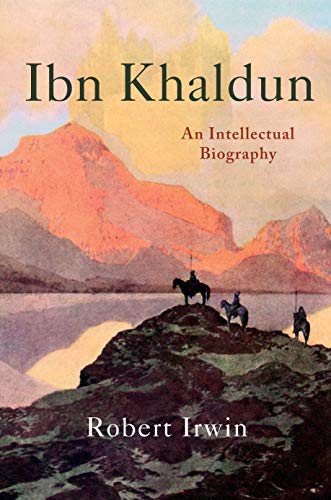

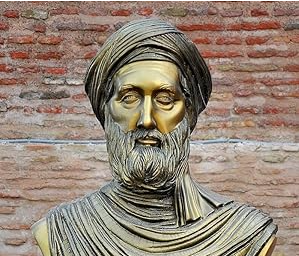
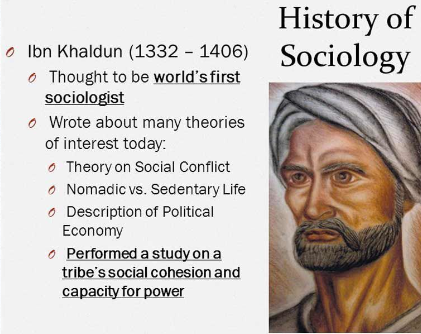
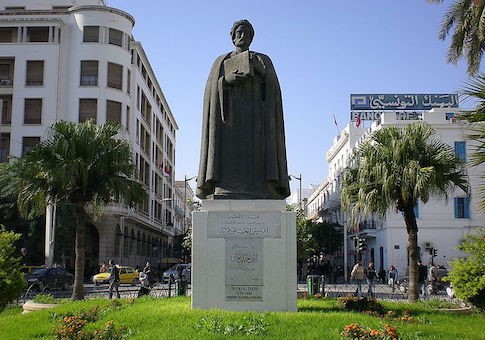

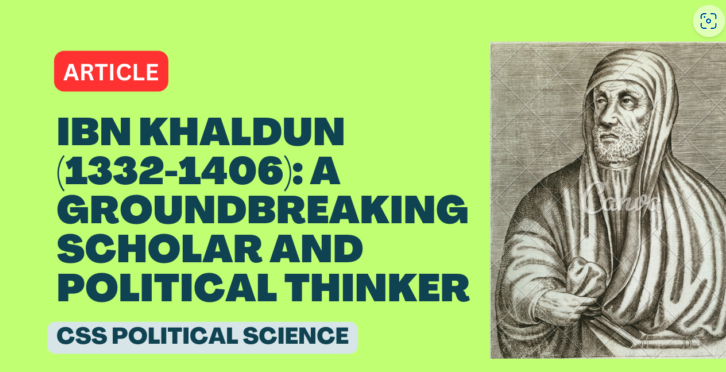
Be the first to comment on "Father of Sociology, Historiography, Economics: Ibn Khaldun"